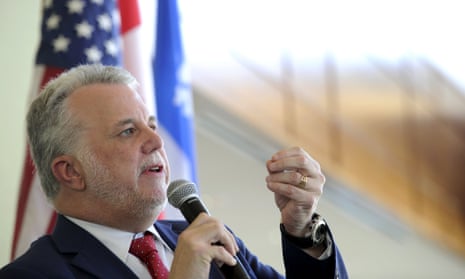Organized crime groups including biker gangs and the mafia infiltrated the construction industry in Quebec so thoroughly that they became “untouchable”, according to a long-awaited new report.
Criminal factions including the mafia and the Hells Angels wielded influence through “intimidation, threats, vandalism, racketeering, prostitution and pimping”, read the 1,600-page report on corruption and collusion published on Tuesday.
The report included 60 recommendations to fix the problem, but is just “the first step in a job that will never end”, Justice France Charbonneau told reporters.
The inquiry into corruption, bribes, kickbacks and violence in the mostly French-speaking province – Canada’s largest – also found links between political donations and awards of public construction projects by Montreal and other cities.
While Quebec’s Liberal government indicated it would adopt the recommendations, the inquiry’s mandate did not include assigning guilt or recommending criminal charges. Several pages of the chapter on the Hells Angels have been blacked out because they deal with ongoing criminal cases.
In response to the report, Quebec’s premier, Philippe Couillard, told reporters the recent lowering of the maximum party contribution to C$100 from C$3,000 had eliminated problems with party financing.
“There is no significant part of my time that is spent on party financing,” Couillard, who took office in 2014, told reporters.
Charbonneau and her team heard some 300 witnesses in more than 260 days of hearings since 2012 before concluding that organized crime had gained influence in the Quebec Federation of Labour and its construction wing, as well as its investment arm and real estate subsidiary.
Former Quebec premier Jean Charest created the commission in 2011, two years after the first allegations of corruption unearthed by journalists investigating ties between the industry, organized crime and political financing.
The report called for the creation of a body independent of the political process for the awarding of road works and other public contracts “without political considerations”.
Charbonneau said that while the vast majority of Quebec public servants are blameless, officials of Quebec’s transport department did take bribes.
The report included a dissenting opinion from Renaud Lachance, Charbonneau’s co-commissioner and former Quebec auditor general, who said testimony had not proven a link between political contributions and the awarding of public contracts.
